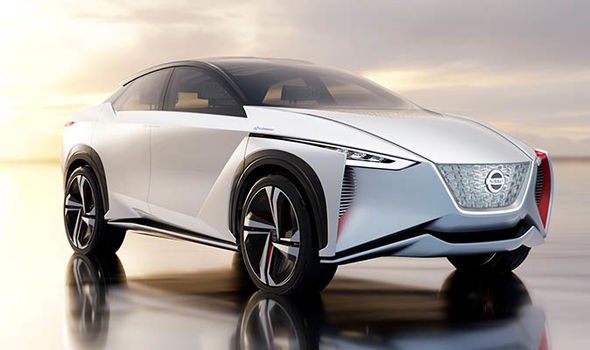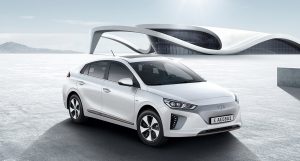Benefits of Electric Vehicles
What are you waiting for? Your key questions – asked and answered!
As the world shifts towards sustainable living, electric vehicles (EVs) are becoming increasingly popular. For both the seasoned EV enthusiast and those new to the technology, understanding the myriad benefits of electric vehicles ownership is essential. The difference in motoring costs from petrol to home charging to public charging can be significant, but that’s only one of the main issues you need to consider. Here, we delve into the top 10 benefits of owning an electric vehicle, highlighting why making the switch can be a wise and forward-thinking decision.
1. Environmental Impact
One of the most significant benefits of electric vehicles is their positive impact on the environment. Traditional petrol and diesel cars emit a substantial amount of greenhouse gases and particulates, contributing to air pollution and climate change. EVs, on the other hand, produce zero tailpipe emissions, making them a significantly cleaner and greener alternative over the course of their lifetime. Right now, there are a lot of arguments about how materials like lithium are sourced for EV batteries, but as we move from mining (in the traditional sense) to a ‘soft recovery’ process using sea water – the impact of creating EVs will lessen. Major car maker BYD has already made a ‘no to cobalt’ and ‘no to nickel’ pledge three years ago. Others will follow – as will better/cleaner/longer running battery technology. By driving an electric vehicle, you can significantly reduce your carbon footprint and contribute to cleaner air and a healthier planet. This extends to other products that you may consider. Example? Korean charger manufacturer Humax has been actively involved with the Carbon Disclosure Project for nine years and is committed to reducing the footprint of its company and products as far as possible.
2. Lower Running Costs Now – and Lower Purchasing Prices Soon
Electric vehicles are generally cheaper to run compared to their petrol or diesel counterparts. The cost of electricity per mile is significantly lower than that of fuel. For instance, if you charge your EV at home on a cheap, overnight tariff (some as low as 7p per kWh), the cost of driving is substantially reduced compared to the 30p/kWh day rate or the 60p/kWh cost of using rapid public chargers. Additionally, EVs have fewer moving parts, resulting in lower maintenance costs over the vehicle’s lifespan. Also worth noting that back in August 2019, VW’s Senior Vice President for North America told the 2019 CAR Management Seminar in Michigan, “We strongly believe that the tipping point is near, and that tipping point will be price equity”.
3. Government Incentives and Grants
The UK government has offered various incentives and grants to encourage the adoption of electric vehicles. Vans, trucks, taxis, motorbikes and wheelchair-accessible vehicles benefit from the Plug-in Vehicle Grant, which provides a discount off the cost of a new EV. There are also grants for installing home charging points. Furthermore, EV owners benefit from reduced road tax and exemption from congestion charges in cities like London. Company car Benefit in Kind rates are lower for EVs too. These financial incentives make electric vehicle ownership more affordable and attractive. What we have seen recently, is car companies ‘bringing back’ these grants – but as a reduction in purchase price.
4. Home Charging Convenience
Charging an electric vehicle at home is incredibly convenient. With a home charging point, you can plug in your car overnight and wake up to a fully charged battery. This eliminates the need for frequent trips to petrol stations and allows you to take advantage of cheaper overnight electricity tariffs. Home charging also ensures that your vehicle is always ready to go when you need it, providing peace of mind and convenience. Despite the majority of chargers having an MSRP of closer to £1,000, you can often find deals that are closer to £600 or even less. At the time we went to press, you could get a 7kW smart charger from Humax with a 4 metres Type 2 cable and 3 year warranty for £538. Also, depending on your supplier, you may find that there are other deals and grants. You can find out more about Government support from the Office for Zero Emissions.
5. Quiet and Smooth Driving Experience
Electric vehicles offer a quiet and smooth driving experience, thanks to their electric motors. Unlike traditional internal combustion engines, electric motors operate silently and provide instant torque, resulting in a more responsive and enjoyable driving experience. The lack of engine noise and vibrations also contribute to a more relaxed and comfortable ride, especially on long journeys. Linking the quietness of an EV with some of the Technological Advancements, you end up with a relaxing – yet very safe – driving experience.
Lane Keep Assist will help keep your EV driving between the lines and Adaptive Cruise Control lets you pick a safe distance to the car in front – and maintain it automatically. This kind of Adaptive Cruise Control will often feature stop/start – so if you find that a section of motorway moves to a 50mph limit for roadworks, your EV will happily stop when the traffic is really heavy – staring again as the car in front pulls off.
6. Technological Advancements
EVs are at the forefront of automotive technology, featuring advanced systems and smart features. Many electric vehicles come equipped with state-of-the-art infotainment systems, autonomous driving capabilities, and sophisticated safety features. An increasing number of EVs offer “Over The Air” (OTA) updates, which mean the software is regularly upgraded to the latest version via a wireless data connection. As technology continues to evolve, owning an electric vehicle means you are driving a car that integrates the latest innovations, offering both convenience and safety, while keeping itself up to date with the latest software features.
Then there is autonomous driving and how much your new EV can actually do the driving for you. You can learn more about autonomous driving levels over here.
7. Reduced Dependence on Fossil Fuels
By driving an electric vehicle, you are reducing your dependence on fossil fuels. This shift is crucial for achieving energy independence and reducing the geopolitical risks associated with oil supply. Moreover, it supports the growth of renewable energy sources such as wind, solar, and hydroelectric power, further promoting a sustainable and resilient energy system. Here in the UK, there have always been ample supplies of wind and waves, but advanced in solar panel technology – could well mean that many more of us can move ‘off grid’ in the future. The expected improvements to solar power/panels by 2050 might surprise you.
8. Performance and Efficiency
Electric vehicles are known for their impressive performance and efficiency. Electric motors deliver maximum torque from a standstill, providing rapid acceleration and a responsive driving experience. Additionally, EVs are more energy-efficient than internal combustion engine vehicles, converting a higher percentage of energy from the battery to power the wheels. This efficiency translates to longer driving ranges and lower energy consumption. This is something that we’re starting to see happening to light commercial vehicles and, eventually, even large/long haul vehicles will be emissions free. We were impressed at the range of 26 ton EVs available for our test two years ago – and now there are a lot more options.
9. Contribution to Energy Grid Stability
In the future, electric vehicles could play a major role in enhancing the stability of the energy grid. With smart charging technologies, EVs can be charged during periods of low demand and high renewable energy generation, such as overnight when wind power is abundant. Some EVs also offer vehicle-to-grid (V2G) capabilities, allowing them to feed electricity back into the grid during peak demand periods. This bidirectional energy flow helps balance the grid and promotes the integration of renewable energy sources. While the UK grid is, generally, very stable – this kind of technology has proven invaluable for Californians over recent summers – when wildfires have devastated large parts of the Pacific electric grid. Families have run essential home services off their Teslas for days, while waiting for PGCE to effect a fix.
10. Growing Infrastructure and Public Charging Network
The UK’s public charging infrastructure is expanding rapidly, making it easier than ever to own and operate an electric vehicle. There are now thousands of public charging points across the country, including rapid chargers that can top up your battery in minutes. Charging stations are becoming more prevalent at workplaces, shopping centres, and motorway service areas, providing greater flexibility and convenience for EV owners. The continued growth of the charging network ensures that range anxiety is becoming a thing of the past. Worth noting that StoreDot has been working with Polestar to show that a 77kWh battery pack can be pushed up to 80% in 10 minutes. That kind of speed and efficiency from next-gen battery tech will make a huge difference to the UK’s EV drivers.
Conclusion
The benefits of electric vehicles are clear and compelling. From environmental sustainability and lower running costs to technological advancements and improved energy grid stability, EVs offer a host of advantages over traditional petrol and diesel cars. As the UK’s charging infrastructure continues to grow and government incentives remain in place, there has never been a better time to make the switch to electric. Embrace the future of motoring and enjoy the myriad benefits of electric vehicle ownership.
This benefits of electric vehicles blog was first published in WhichEV
We are MCS Certified Solar Panel Installers. See more information on Solar Panels.
Click for more information on Battery Storage.
For more information on Solar Panels and Battery Systems contact Tanjent Energy.






